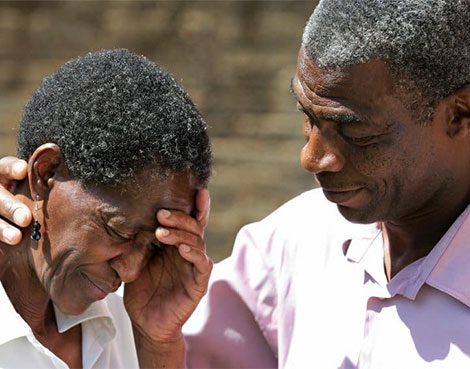Challenges Faced by Older Couples
The golden years often bring with them a new set of challenges that can test the endurance of any relationship. Older couples frequently grapple with transitions such as retirement, the ’empty nest’ phenomenon, health concerns, and the natural process of aging, which collectively can strain communication and intimacy.
Transitioning into Retirement
The structure of daily life changes drastically upon retirement, with spouses suddenly spending the majority of their time together. This shift in dynamic can be both exhilarating and overwhelming, leading to the discovery of new shared interests or exposing previously unnoticed differences.
Empty Nest Syndrome
After decades of child-rearing, the silence left by adult children moving on can leave couples feeling disconnected and unsure of how to redefine their relationship without the primary focus on family.
Health Concerns and Aging
The reality of aging often brings with it health issues that can significantly impact individual well-being as well as the couple’s ability to enjoy activities together.
Communication and Intimacy Issues
As bodies and minds change, so do the ways in which couples communicate and express intimacy. In the hurried years of raising a family and building careers, these foundations may have been inadvertently neglected, requiring a renewed focus in the years of retirement.
Benefits of Marriage Counseling
Marriage counseling offers a structured, supportive environment for older couples to unpack these challenges and work toward a more fulfilling relationship. The benefits are manifold, from improved communication to the development of new coping mechanisms for life’s inevitable changes.
Enhancing Communication Skills
Counseling equips couples with tools to communicate effectively, ensuring that they can express their needs and emotions constructively.
Addressing Unresolved Issues
Years can pass with unresolved conflicts that subtly erode the marriage. Counseling provides a platform to address these issues directly.
Reinforcing Emotional Connection
As daily life evolves, so must the emotional connection between partners. A counselor can guide couples in reconnecting and deepening their emotional bond.
Developing Coping Strategies
Therapy can help couples anticipate and plan for the challenges of aging, ensuring they have effective strategies to navigate this new phase of life.
Specific Considerations for Older Couples
Marriage counseling tailored to the specific needs of older couples navigates the nuances of second marriages, blended families, financial management, adult children, and the preservation of intimacy.
Second Marriages and Blended Families
For couples entering into a second marriage or managing a blended family, counseling can help establish new family dynamics and co-parenting strategies.
Dealing with Grief and Loss
Older couples may face the loss of close family and friends or the challenges of personal health; counseling provides a space to grieve and heal together.
Managing Financial Changes
The financial impact of retirement and aging can be substantial; counseling can help couples navigate these changes with open and honest communication.
Nurturing Intimacy and Sexual Satisfaction
Counseling for intimacy is an essential focus for many older couples, helping them rediscover and effectively communicate their desires and needs, ensuring mutual satisfaction.
Choosing the Right Counselor
The success of marriage counseling for older couples often hinges on the expertise and experience of the therapist. Maplewood Counseling specializes in couples’ therapy and has experienced and licensed therapists who work frequently with older adults.
Experience and Expertise with Older Couples
We have experience working with older couples and understand the unique challenges faced by aging individuals will ensure the sessions are fruitful and relevant.
Compatibility and Trust
Establishing a rapport with the counselor is vital. Ensure that both spouses feel comfortable with the therapist and are able to trust their guidance and expertise.
Conclusion
Marriage counseling for older couples presents a powerful opportunity to rejuvenate and strengthen relationships. As the fabric of life changes with age, investing in one’s marriage can ensure that the journey continues to be fulfilling and meaningful. I encourage older couples to explore the possibilities that counseling offers, to bridge the communication gaps, address unresolved issues, and foster a deep sense of connection that endures the tests of time. Nurturing your relationship post-midlife is not just about longevity; it’s about the richness and quality of the years you have left together.
Whether you are in a long-term marriage, second marriage or new relationship or second marriage – we can provide a safe place to explore these important questions, please get in touch.








